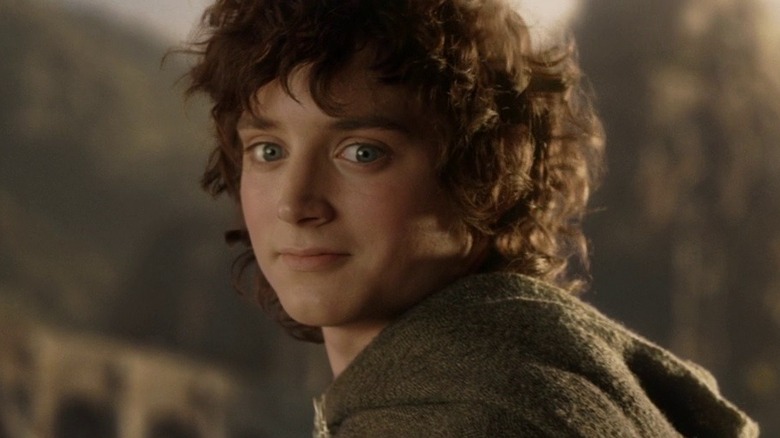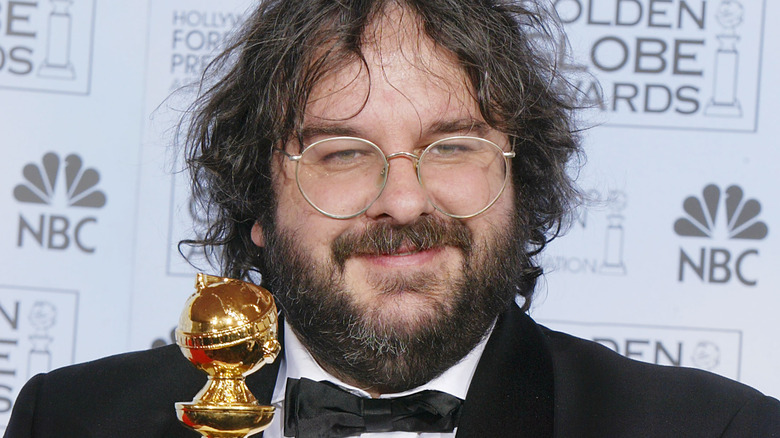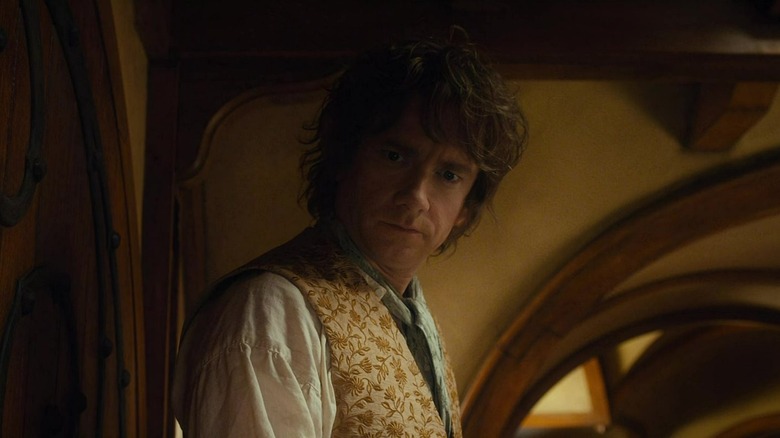The Lord Of The Rings: Which Movie Divided Audiences And Critics The Most?
"The Lord of the Rings" trilogy was a juggernaut when it hit theaters in the early aughts. Directed by Peter Jackson and based on the books by J. R. R. Tolkien, the films won over viewers with their impeccable casting and the sweeping New Zealand vistas that served as the locations for Jackson's interpretation of Middle-earth. But even as fans and critics continue to crow over the quality of these adaptations, fissures have formed between the two sides on certain installments.
"The Lord of the Rings" is one of the highest-grossing series of all time, with the franchise's final chapter, "The Lord of the Rings: The Return of the King," emerging triumphant as the top earner in 2003, thanks to the film's $1.146 billion in global box office returns. But strong ticket sales don't always translate into a consensus between audiences and critics. When it comes to the three "Lord of the Rings" movies, "Return of the King" continues to cause the greatest divide between the two camps.
Critics and audiences were mostly aligned on the Lord of the Rings trilogy
Premiering in 2001, "The Lord of the Rings: The Fellowship of the Ring" served as the first installment in the trilogy and — for those unfamiliar with J. R. R. Tolkien's books — the gateway into his fantastical world of hobbits, dwarves, elves, wizards, and dragons. According to Rotten Tomatoes, the critical and audience reaction to the film is both positive and closely aligned, with only a 4-percentage-point difference between the 91% critics rating and the 95% audience score. The film was also celebrated by the industry, garnering 13 Oscar nominations, with wins in the categories recognizing cinematography, makeup, original score, and visual effects.
"The Two Towers," which debuted the following year, was even more congruent, with both Rotten Tomatoes audience and critics scores coming out to 95%. This film was less successful on the awards circuit, however, earning only six Oscar nods and two wins.
It wasn't until "The Return of the King" was released in 2003 that audiences and critics found themselves split on their perceptions of the film. And surprisingly, critics embrace the final chapter in the trilogy more than fans do. Rotten Tomatoes shows an 8-percentage-point discrepancy between the 94% score given by critics and the 86% audience rating. This disparity proved even more confusing during the Oscars, where the film swept the ceremony, receiving 11 nominations (including best picture, best director, and best adapted screenplay) and taking home trophies in each of the categories it was nominated in.
Audiences were fonder of the Hobbit trilogy than critics were
"The Lord of the Rings: The Return of the King" had fans and critics out of alignment, but the film is nowhere near as divisive as the "Hobbit" trilogy, which premiered nine years after the last "Lord of the Rings" film was released. Adapted from another of J. R. R. Tolkien's books, the "Hobbit" franchise stars Martin Freeman as Bilbo Baggins, and while the films were released later, the events depicted in the story take place earlier in the "Lord of the Rings" timeline.
Peter Jackson replaced Guillermo del Toro as director for the second series, but even his steady hand wasn't enough to create unanimity amongst critics and fans. "The Hobbit: An Unexpected Journey," released in 2012, provokes the most disagreement of all six films, with a 19-percentage-point difference between the 64% rating provided by critics on Rotten Tomatoes and the 83% audience rating. "The Desolation of Smaug," released in 2013, comes closer to providing consensus, with only a 10-percentage-point split between the 75% critics score and the 85% fan score. But by the time 2014's "The Battle of the Five Armies" rolled around, fans and critics were battling again, and the film currently sports a 14-percentage-point rift between the critical rating of 60% and the audience score of 74%.
"The Hobbit" films didn't just score lower on Rotten Tomatoes — they also came up short at awards shows. The entire trilogy merited seven Academy Awards nominations and zero wins, a far cry from the 30 nods received by "The Lord of the Rings." Not that Peter Jackson needs the industry recognition — thanks to global box office sales on all six films, he's laughing all the way to the bank.


